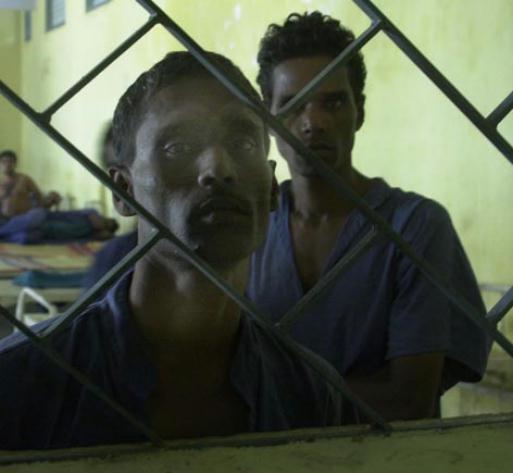
World Mental Health week celebrated at Kilpauk Mental Hospital in Chennai, to mark the "World Mental Health Day". A file photo: K.V. Srinivasan
Aarti Dhar, Jan 23, 2012
The World Health Organisation (WHO) has adopted a resolution moved by India that focuses on the global burden of mental disorders and the need for a comprehensive, coordinated response from health and social sectors at the country level.
The just-concluded 130th executive board meeting of the WHO adopted the resolution, moved by India and supported by the United States of America and Switzerland. This marks the first time in over a decade that WHO has, at its highest levels, taken note of this very major public health concern.
Mental disorders account for 13 per cent of the global burden of the diseases and, in keeping with latest thinking, the resolution recognizes the importance of early identification, care and recovery, the problems of stigma, poverty and homelessness and the need for community based intervention including de-institutionalised care. It is clearly recognized that all countries must take steps to promote mental health and empower persons with mental disorders to lead a full and productive life in the community.
India had played a key role in getting mental disorders included in the non-communicable diseases (NCDs) list at the first Ministerial Conference on Healthy Lifestyles and Non-communicable Disease Control in Moscow last year. Pleading for its case, India had argued that “like all non-communicable diseases, mental disorders required long term treatment and affected the quality of life.”
The principal non-communicable diseases are cardiovascular diseases, diabetes, cancers and chronic respiratory diseases, which are the leading causes of preventable morbidity and disability, and currently cause over 60 per cent of global deaths, 80 per cent of which occur in developing countries. By 2030, the NCDs are estimated to contribute to 75 per cent of global deaths.
India is already working towards framing a mental health policy based on internationally-accepted guidelines. It will also keep in mind the specific context of mental illness in the country and take into account the draft Mental Health Care Bill, 2010.
A 12-member policy group entrusted to frame the National Mental Health Care Policy and Plan will prepare a situational analysis of the need for mental health care in the country, taking into account the issues of human resources, essential drug procurement and distribution, advocacy, prevention, and rehabilitation of mental health patients.
Related articles
- Some Facts About Women’s Mental Health (P 4) (justsimplyinlove.wordpress.com)
- Mental health literacy: Empowering the community to take action for better mental health. Anthony F. Jorm (jeanettebartha.wordpress.com)
- 11. Mental Health as a National Health Priority – Ottawa 2012 – Liberal Biennial Convention | Congrès biennal libéral – Ottawa 2012 (worldwright.wordpress.com)
- How Much of the Mental Health Industry Is a Sham? (aleksandreia.com)










Jun 07, 2012 @ 21:12:15
‘Overload’ a film made by people who use mental health services in South London.
Overload’, directed by Ivan Riches, is a film about how modern day living in South London affects people’s senses; sight, hearing, taste, touch, thought processes, feelings and memories. The film shows people’s accounts of mild to severe effects of overload, what triggers it, how it affects their lives, how it makes them feel and what they do to cope with it.
“I am really impressed with the creativity and courage shown by the company that has both shared very personal and difficult memories, and learnt important new skills in film making and editing as part of the production process for “Overload”. Make no mistake participants have shown real courage in sharing their personal struggles with overload. They have done so in order to challenge the stigma attached still to ‘mental illness’, and to empower others who experience overload to feel they are not alone, and can find a voice through creativity”.
David Savill (Artistic Director, Age Exchange)
‘Overload’ is part of Hearts and Minds, a three year creative arts and reminiscence programme for people who use mental health services in South London. The programme was created by Age Exchange, working in partnership with The South London & Maudsley NHS Foundation Trust. Throughout three years of activity Age Exchange is developing projects in creative care, working across Lambeth, Southwark, Lewisham and Croydon. http://www.age-exchange.org.uk